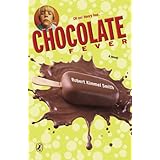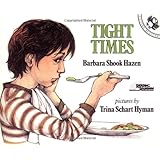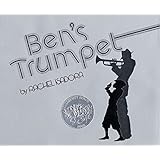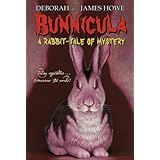I’m on vacation this Thursday, so I hope you’ll forgive a perhaps spotty posting!
Historically in this decade, with a focus on new technology:
1970–Floppy disks introduced
1971–VCRs introduced
1972–Pocket calculators introduced
1973–Skylab (first U.S. space station) launched
1975–Microsoft founded
1976–Apple Computer founded
1977–First Star Wars movie released
1979–Walkman introduced by Sony
In literature (Newberys):
1970–Sounder, by William H. Armstrong
1971–Summer of the Swans, by Betsy Byars
1972–Mrs. Frisby and the Rats of NIMH, by Robert C. O’Brien
1973–Julie of the Wolves, by Jean Craighead George
1974–The Slave Dancer, by Paula Fox
1975–M.C. Higgins, the Great, by Virginia Hamilton
1976–The Grey King, by Susan Cooper
1977–Roll of Thunder, Hear My Cry, by Mildred D. Taylor
1978–Bridge to Terabithia, by Katherine Paterson
1979–The Westing Game, by Ellen Raskin
In literary art (Caldecotts):
1970–Sylvester and the Magic Pebble, by William Steig
1971–A Story A Story, retold and illustrated by Gail E. Haley
1972–One Fine Day, retold and illustrated by Nonny Hogrogian
1973–The Funny Little Woman, retold by Arlene Mosel, illustrated by Blair Lent
1974–Duffy and the Devil, retold by Harve Zemach, illustrated by Margo Zemach
1975–Arrow to the Sun, by Gerald McDermott
1976–Why Mosquitoes Buzz in People’s Ears, retold by Verna Aardema, illustrated by Leo & Diane Dillon
1977–Ashanti to Zulu: African Traditions, by Margaret Musgrove, illustrated by Leo & Diane Dillon
1978–Noah’s Ark, by Peter Spier
1979–The Girl Who Loved Wild Horses, by Paul Goble
I’m going to be open here: I was born in 1979. The first memory I have of any of the award-winning books of the decade are the two Leo & Diane Dillon books, but many from the Newbery list later became favorites. I’m going to skip all those now that they’re listed and just tell you about a few others that have stuck with me somehow from this decade.
 Chocolate Fever, by Robert Kimmel Smith (1972): Henry loves chocolate so much that he breaks out in chocolate fever and flees the hospital to avoid the treatments of doctors who don’t know what to do! A truck driver named Mac gives him a ride, but they are hijacked by two thieves who believe the truck to be carrying expensive furs (instead of the chocolate bars it’s really hauling). Henry learns the value of moderation and considering others (like his parents) when he makes his choices. BoyChild and GirlChild enjoyed this audiobook, and GirlChild had already read it in her classroom in second grade as well.
Chocolate Fever, by Robert Kimmel Smith (1972): Henry loves chocolate so much that he breaks out in chocolate fever and flees the hospital to avoid the treatments of doctors who don’t know what to do! A truck driver named Mac gives him a ride, but they are hijacked by two thieves who believe the truck to be carrying expensive furs (instead of the chocolate bars it’s really hauling). Henry learns the value of moderation and considering others (like his parents) when he makes his choices. BoyChild and GirlChild enjoyed this audiobook, and GirlChild had already read it in her classroom in second grade as well.
The Dark Is Rising,  by Susan Cooper (1973): I received this book as a gift from either my fourth or fifth grade teacher. It’s the second of the series, and I never got around to reading the first, but I read the rest of the series! Steeped in European mythology, I believe it was one of my first solo ventures into magical realism in novel form. The seventh son of a seventh son, Will Stanton is the last of the Old Ones, and his adventures start as he turns eleven. A little darker than a lot of the children’s series that I enjoy, this is a good series for upper elementary and middle school age readers.
by Susan Cooper (1973): I received this book as a gift from either my fourth or fifth grade teacher. It’s the second of the series, and I never got around to reading the first, but I read the rest of the series! Steeped in European mythology, I believe it was one of my first solo ventures into magical realism in novel form. The seventh son of a seventh son, Will Stanton is the last of the Old Ones, and his adventures start as he turns eleven. A little darker than a lot of the children’s series that I enjoy, this is a good series for upper elementary and middle school age readers.
 Tight Times, by Barbara Shook Hazen, pictures by Trina Schart Hyman (1979): “Tight times” mean the little boy who tells the story can’t get a dog. His daddy explains all the things in their life right now that are a part of tight times: Mommy going to work, bulk cereal, and no trips to the lake. Then Daddy loses his job, and the little boy finds a cat in a trash can outside. He names the cat Dog because he’s always wanted one. There is no “happy ending” exactly to the story–the boy gets to keep the cat, but there is no solution to the real issues–just like life.
Tight Times, by Barbara Shook Hazen, pictures by Trina Schart Hyman (1979): “Tight times” mean the little boy who tells the story can’t get a dog. His daddy explains all the things in their life right now that are a part of tight times: Mommy going to work, bulk cereal, and no trips to the lake. Then Daddy loses his job, and the little boy finds a cat in a trash can outside. He names the cat Dog because he’s always wanted one. There is no “happy ending” exactly to the story–the boy gets to keep the cat, but there is no solution to the real issues–just like life.
Ben’s Trumpet,  by Rachel Isadora (1979): I kind of love almost everything Rachel Isadora does. This book–about my favorite instrument, no less!–is no exception. Done completely in black and white, it tells the story of a boy named Ben who pretends to play a trumpet and loves listening to jazz musicians play. The trumpet player from the jazz club compliments his “trumpet,” but the other kids make fun of him. Later, the jazz trumpeter takes him to a practice at the club to teach him to play the real horn.
by Rachel Isadora (1979): I kind of love almost everything Rachel Isadora does. This book–about my favorite instrument, no less!–is no exception. Done completely in black and white, it tells the story of a boy named Ben who pretends to play a trumpet and loves listening to jazz musicians play. The trumpet player from the jazz club compliments his “trumpet,” but the other kids make fun of him. Later, the jazz trumpeter takes him to a practice at the club to teach him to play the real horn.
 Bunnicula, by James and Deborah Howe (1979): I recently checked out the whole Bunnicula series on audiobook for a roadtrip with my kids. They almost refused to listen–too much suspense, I think!–but they ended up loving these stories about an innocent (but possibly vampire) bunny, Harold the happy-go-lucky author dog of the book, and suspicious Chester the cat.
Bunnicula, by James and Deborah Howe (1979): I recently checked out the whole Bunnicula series on audiobook for a roadtrip with my kids. They almost refused to listen–too much suspense, I think!–but they ended up loving these stories about an innocent (but possibly vampire) bunny, Harold the happy-go-lucky author dog of the book, and suspicious Chester the cat.
What Do We Do All Day published a list that contains many of my favorites and a few I’d never heard about!
